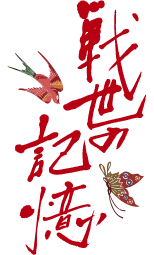
War Memoir: Ishibe Unit Wired Communication Corps
War Memoir: Ishibe Unit Wired Communication Corps
Name: Seishun Higa (36比嘉誠春)
Age at the time: 19 years old (Born in April 1925)
Status at the time: Prefectural Agriculture and Forestry School 3rd-year student recruit (combatant)
[Withdrawing Japanese Soldiers]
I heard that US forces landed from the coast of Sobe in Yomitan and proceeded to Kadena, dividing the main island of Okinawa in two from around the Awase area. After that, the US forces invaded slowly toward the south. I was in the watch tower in Shuri Castle from where I could see the Japanese forces being pounded by intense US naval bombardment, so I was very anxious. Since the first line of defense of Shuri Castle was Kakazu, the Japanese forces were to stop the US forces there at any cost. The battle at Kakazu was like the start of full-scale war for the Japanese forces. As Urasoe is located south of Kakazu, the situation was such that if the US forces were to break through Kakazu, the Japanese forces would be completely wiped out if they failed to stop the US forces in Urasoe, so very fierce battle went on there. Since we were members of a communication corps, we did not participate in actual combat, but information on the combat situation kept coming in. On May 27, the sight of the enemy forces became very conspicuous in the Ishimine area of Shuri. We had planned to evacuate at midnight on May 27, but by that time, bombings by US forces were already going on day and night. Therefore, we were unable to leave at midnight, and although I do not remember how long our departure was delayed, our whole squad managed to retreat upon determining the right time when shells stopped flying toward us.
After we retreated to the Shimajiri area, it was quiet for two to three days. The US forces must have thought that if they advanced toward Shuri, they would face resistance from the Japanese forces, but when they arrived in Shuri, the Japanese forces were already gone, so they advanced toward Shimajiri at once.
When the Japanese forces fired one shot, the US forces returned about 1,000 shots. It was hard to believe that there were two to three days of silence. The Japanese forces were pinned down during the day time, so they attacked during the night. Japanese troops shouldered makeshift bombs that resembled a railroad tie that would explode by a pulling a string attached to the tie, and climbed into enemy tanks. I think the enemy had no idea that the Japanese troops would charge at them with bombs on their backs, so this tactic was successful at first, and we were all happy. However, the enemy is no fool, so they adapted quickly.
They would move their tanks slowly with foot soldiers following behind the tanks and burning down the surrounding area with flamethrowers. They would stop and check whether there were any foxholes where Japanese soldiers were hiding, and then advance slowly. Therefore, we were unable to do anything.
The difference in the amount of available resources between the Japanese and the US forces was obvious. The Shimajiri area had abundant spring water, and the US forces were familiar with that. Knowing that people came to draw water in the evening, the US forces attacked these people, so a very large number of people got killed where there was spring water. People who came there were like sitting ducks. Therefore, we could not go out to draw water, and there was extreme shortage of drinking water. In early June, the Japanese infantry was in a state of complete annihilation with no soldiers to fight, so there was a restructuring of units. All the members of the communication corps were also incorporated as combat personnel and became dispersed.
The six to seven people belonging to the Fifth Squad were able to remain as communication corps personnel until the end. I was the only under-age solder among them. People other than the six or seven of us were incorporated as combat personnel and died in the war, so I think I was lucky. Although the six or seven of us were allowed to remain as members of the communication corps, we were unable to lay even a single communication line amid the intensive shelling by the US forces, so although we had equipment, it was meaningless. Just around that time, organized resistance ceased. After that, we fled from an air raid shelter in Yamashiro where we had been hiding, and became remnants of a defeated army.
Name: Seishun Higa (36比嘉誠春)
Age at the time: 19 years old (Born in April 1925)
Status at the time: Prefectural Agriculture and Forestry School 3rd-year student recruit (combatant)
[Withdrawing Japanese Soldiers]
I heard that US forces landed from the coast of Sobe in Yomitan and proceeded to Kadena, dividing the main island of Okinawa in two from around the Awase area. After that, the US forces invaded slowly toward the south. I was in the watch tower in Shuri Castle from where I could see the Japanese forces being pounded by intense US naval bombardment, so I was very anxious. Since the first line of defense of Shuri Castle was Kakazu, the Japanese forces were to stop the US forces there at any cost. The battle at Kakazu was like the start of full-scale war for the Japanese forces. As Urasoe is located south of Kakazu, the situation was such that if the US forces were to break through Kakazu, the Japanese forces would be completely wiped out if they failed to stop the US forces in Urasoe, so very fierce battle went on there. Since we were members of a communication corps, we did not participate in actual combat, but information on the combat situation kept coming in. On May 27, the sight of the enemy forces became very conspicuous in the Ishimine area of Shuri. We had planned to evacuate at midnight on May 27, but by that time, bombings by US forces were already going on day and night. Therefore, we were unable to leave at midnight, and although I do not remember how long our departure was delayed, our whole squad managed to retreat upon determining the right time when shells stopped flying toward us.
After we retreated to the Shimajiri area, it was quiet for two to three days. The US forces must have thought that if they advanced toward Shuri, they would face resistance from the Japanese forces, but when they arrived in Shuri, the Japanese forces were already gone, so they advanced toward Shimajiri at once.
When the Japanese forces fired one shot, the US forces returned about 1,000 shots. It was hard to believe that there were two to three days of silence. The Japanese forces were pinned down during the day time, so they attacked during the night. Japanese troops shouldered makeshift bombs that resembled a railroad tie that would explode by a pulling a string attached to the tie, and climbed into enemy tanks. I think the enemy had no idea that the Japanese troops would charge at them with bombs on their backs, so this tactic was successful at first, and we were all happy. However, the enemy is no fool, so they adapted quickly.
They would move their tanks slowly with foot soldiers following behind the tanks and burning down the surrounding area with flamethrowers. They would stop and check whether there were any foxholes where Japanese soldiers were hiding, and then advance slowly. Therefore, we were unable to do anything.
The difference in the amount of available resources between the Japanese and the US forces was obvious. The Shimajiri area had abundant spring water, and the US forces were familiar with that. Knowing that people came to draw water in the evening, the US forces attacked these people, so a very large number of people got killed where there was spring water. People who came there were like sitting ducks. Therefore, we could not go out to draw water, and there was extreme shortage of drinking water. In early June, the Japanese infantry was in a state of complete annihilation with no soldiers to fight, so there was a restructuring of units. All the members of the communication corps were also incorporated as combat personnel and became dispersed.
The six to seven people belonging to the Fifth Squad were able to remain as communication corps personnel until the end. I was the only under-age solder among them. People other than the six or seven of us were incorporated as combat personnel and died in the war, so I think I was lucky. Although the six or seven of us were allowed to remain as members of the communication corps, we were unable to lay even a single communication line amid the intensive shelling by the US forces, so although we had equipment, it was meaningless. Just around that time, organized resistance ceased. After that, we fled from an air raid shelter in Yamashiro where we had been hiding, and became remnants of a defeated army.


